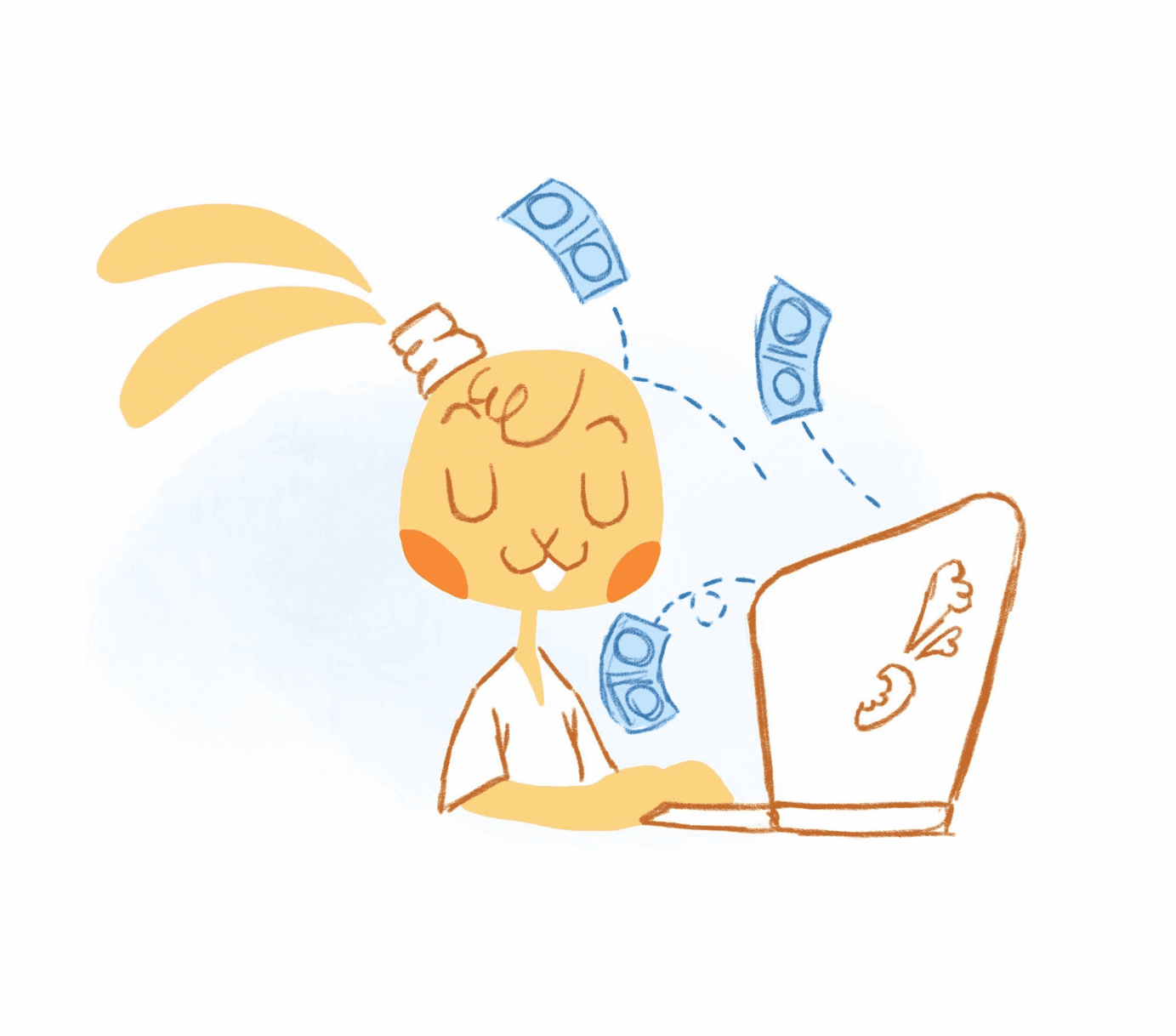

There are a lot of myths about freelancing in America. A lot of this could prevent you for your personal growth. According to the freelancer data, there are more than 57 million people freelancing. That’s currently 36 percent of the workforce — and it’s expected that freelancers will make-up a majority of the workforce by 2027. Additionally, the study reports that the “freelance workforce is growing faster than the overall U.S. workforce. Freelancing is outpacing overall U.S. workforce growth at a rate 3x faster since 2014.”
As a seasoned freelancer, I’m thrilled. For years people looked at me curiously when I told them that I was a freelancer. It appears now, that more and more people are viewing freelancing as a legit career path.
At the same time, while I love freelancing, it hasn’t always been the easiest career path. There’s been a lot of trial and errors over the years. There are decisions such as determining how much to charge clients and how to become self-motivated.
I would say the biggest hurdle has been uncovering the truth regarding common myths about freelancing.
Believing the following eight freelancing misconceptions didn’t just prevent me from becoming successful professionally — they also held me back from growing personally as well.
1. You’re the boss.
Do we have the traditional boss like Bill Lumbergh in Office Space asking for reports ASAP — or telling us that we have to come into work on Saturday? No we don’t. But, we do have to answer to our clients. Since they’re paying us to do a job for them we do have to be available, communicative, meet deadlines, and follow their guidelines.
Sure. There’s a ton of anonymity and independence as a freelancer. But if you’re working with five clients, then you actually have five mini-bosses. That makes it more challenging than just having one manager or supervisor to answer to. These clients are all individuals with specific ideas about how they want their projects to be carried out.
In order to be a successful freelancer and grow personally, you have to sometimes put your ego aside — and actually listen to what others are saying. Sometimes (usually) you have to play by a different set of rules with each client. That doesn’t mean that you can’t fire a bad client or work on a job how you would like. It just means that you still have to answer to someone else.
2. You only have to work a couple of hours per day.
At some point it may be possible to work that four-hour work week Tim Ferriss has been talking about. But — for sure, that’s not when you’re just starting out.
If you don’t want clients to breath down your neck and you don’t want to piss them off — then you need to hustle. The hustle is especially true if you’re juggling multiple clients while also being your own manager, bookkeeper, HR department, and marketing team.
Freelancing — along with being successful in life — is all about prioritizing what’s important and learning how to be as efficient as possible.
The best way to become a success is by learning time management techniques. One of the big time management tools is using time blocks in your calendar. This means setting specific hours that you work — eliminating distractions — and not wasting time on activities that aren’t productive.
Eventually, you’ll get better at this and you’ll have some time on your hands that is ancillary — but it might only be two extra minutes. If you want to thrive, you’ll definitely still need to work more than a couple of hours per day — you just don’t want to work many 15-18 hour days.
3. It’s pajamas all day, every day.
When I started freelancing I would wear the same clothes I slept-in. If I did get dressed — it was into sweatpants or mesh shorts. Was I comfortable? You bet I was. But, I quickly learned that I was more productive on the days that I actually got up — showered and dressed like I was going to work.
Turns out that I’m not the only one that was making this scheduling error.
Research show that dressing smart can make you feel more confident and self-empowered. Wearing professional attire can switch on that creative button. Rolling-up sleeves sends the message that you’re a hard worker.
If you want to perform better, then start wearing real clothes when you work. It’s also good to remember to look your best when you leave the house to meet with clients or attend networking events. You definitely want to dress for success and not show-up like you just got out-of-bed.
4. You make more money than at a traditional job…and in less time.
It’s no secret that the top freelancers charge top dollar. The thing is that they worked hard for that top-tier payment. One of the top myths of freelancing is you’ll make top dollar right off the bat.
Successful freelancers can charge higher rates because they’ve put in the time and effort. They have a portfolio and testimonials from clients who can back-up how talented they are. They’re reliable and dependable as well. Over time, you’ll start landing those high-profile clients.
During my first year or so I worked part-time. Even worse — the pay wasn’t great. However, one small job landed to a recurring gig and that introduced me to some new clients. These clients hired me because I had a solid reputation of being a dependable and hard worker.
Can you make a decent living at freelancing? Yes. But it takes time and you’ll need to earn this reputation in order to have the benefits.
5. You work whenever you want.
Freelancing does allow for a flexible schedule. For example, If I want to work four-days a week between seven a.m. and five p.m. I have that luxury.
At the same time, you’re also at the mercy of your clients. If they need something completed by the end of the week — then you need to work accordingly so that you can meet that deadline. This means if a friend texts you and asks of you want to go to lunch — you will have to give them a rain check. Again, it all comes down to learning how to prioritize.
6. Working from home is so awesome that you never leave.
Don’t get me wrong. I enjoy working from home. It definitely beats that hectic morning commute. I happily set that aside — and still see people suffer through this every morning and evening.
But, working from home has its disadvantages. There’s distractions like household chores, Netflix, and your friends and family. It can also get lonely and boring. Worst of all — there are days when you’re not feeling motivated — and it’s tough to get yourself back-on-track.
Instead of working at home all of the time — I try to occasionally get out of the house. I go to a local coffee shop or co-working space. The environment makes me feel more productive, but there’s also plenty of opportunities to network. It could be another freelancer who passes along some advice or a potential client they can’t handle right at that moment.
What’s more, coworking spaces offer gym classes, a library, or classes for you to enhance your freelancing skills.
7. You get to work only on the projects that interest you.
Let’s say that you’re a freelancer writer who is a history buff. While there are ways to cash-in on this skill and interest, that interest may not always pay the bills. This means sometimes you’ll have to take-on writing gigs that you’re not interested in. I mean I’ve had to write some pretty boring content during my career — just to build my portfolio and experience.
Additionally, because you are your own CEO, accountant, salesperson, and project manager there are projects you need to work-on that are outside your talents. I dread anything that I have to do that has numbers.
However, I’ve had to create and stick to a budget. That’s just a part of life. Sometimes you have to do things that you don’t like — but it will make you a more well-rounded individual.
8. Myths About Freelancing: It’s nothing like starting a “real” business.
Finally, people tend to believe that becoming a freelancer is nothing like starting a “real” business. However, like any other business, you need a solid foundation. That solid foundation involves forming a LLC.
Troy Martin makes this case over at Freelancers Union.
Martin writes that a LLC can protect your assets if you’re ever sued and give your business credibility. An LLC also allows you to customize your tax benefits to best suit your needs. Best of all, setting-up a LLC is easy, inexpensive, and there aren’t any location requirements.











Nina Gass
Nina Gass is a content writer with a diverse background who understands the struggles of small business owners, freelancers, and company founders. Her content delivers insightful and actionable advice to improve time management, productivity, and sanity despite wearing numerous hats and juggling multiple responsibilities in work and life.